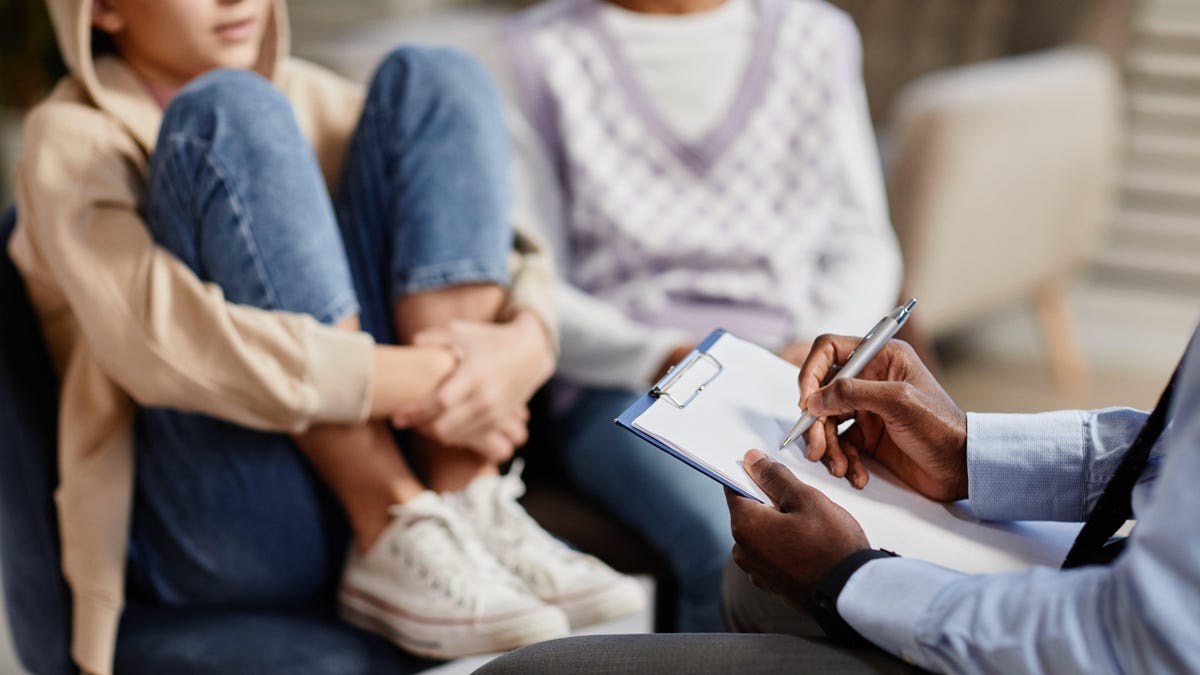
The past few years have been especially tough on the mental health of our children, to the point that a number of children’s health experts, including the American Academy of Pediatrics, the Children’s Hospital Association, and the American Academy of Child and Adolescent Psychiatry, have declared it a national emergency.
If your child is in need of therapy, you may be wondering how you can support them at home, so they can benefit as much as possible from it. For advice, we turned to Melissa Goldberg-Mintz, a child psychologist and author of the book “Has Your Child Been Traumatized? How to Know and What to Do to Promote Healing and Recovery.”
How to help kids get comfortable with therapy
“The first step is helping your kid get in the door,” Goldberg-Mintz said. “A lot of times, kids are resistant to therapy,” whether it’s because they’ve had a bad experience in the past, or because of the stigma. To help assuage their fears, Goldberg-Mintz recommends giving your child the space to ask questions and to express their concerns.
She also recommends giving your child options. Let them choose between a male or female therapist, a morning or afternoon session, or in-person versus virtual sessions. “This will help empower your child to feel like they are part of the decision-making process about who their therapist is,” Goldberg-Mintz said.
Then, once your child is enrolled in therapy, Goldberg-Mintz recommends making an effort to show your support. One simple way to do that, especially for younger children, is to be physically present during the therapy sessions, even if it is just waiting outside in the waiting room. “Even if we just have a five-minute check in with the parent at the end of the session, it makes a big difference having the parent be there physically,” she said.
Give your child the space to share (or not share)
After your child’s therapy session, your instinct may be to question them on how it went, and what they discussed, which Goldberg-Mintz advises against. “Please don’t pepper your child with questions,” she said. “They’ve just been very vulnerable, and it makes sense that they don’t want to divulge things, as this might feel like their private space.”
If they do want to talk, Goldberg-Mintz recommends giving them the space to do so, and to make sure that their fears and worries are validated and normalized. “Normalizing their worries can go a long way to helping them feel supported,” she said.
It’s also important not to dismiss their worries, even unintentionally, by saying things like, “Everything will be fine,” as that can come across as invalidating. “Even though it is coming from a good place, that’s not always what kids need to hear, and some kids might experience it as dismissive,” she said.
Goldberg-Mintz also recommends spending high-quality, one-on-one time with your child, where you are doing something together that you both enjoy. “That’s going to deepen your relationship so that if something is not going well, they’ll be more likely to tell you,” she said.
Consider a feedback session
Long-term, you’ll want to periodically assess how well your child’s therapy is working, and if anything needs to be changed. One option is to schedule a feedback session with your child’s therapist, where you can discuss how your child is doing, and if there are any changes that need to be made.
In Goldberg-Mintz’s experience, feedback sessions are especially useful if your child is younger, as they might not be as communicative as an adolescent child. When it comes to teenagers, “If they don’t like therapy, and they don’t want to go, they will let you know,” she said.
Credit: Source link



